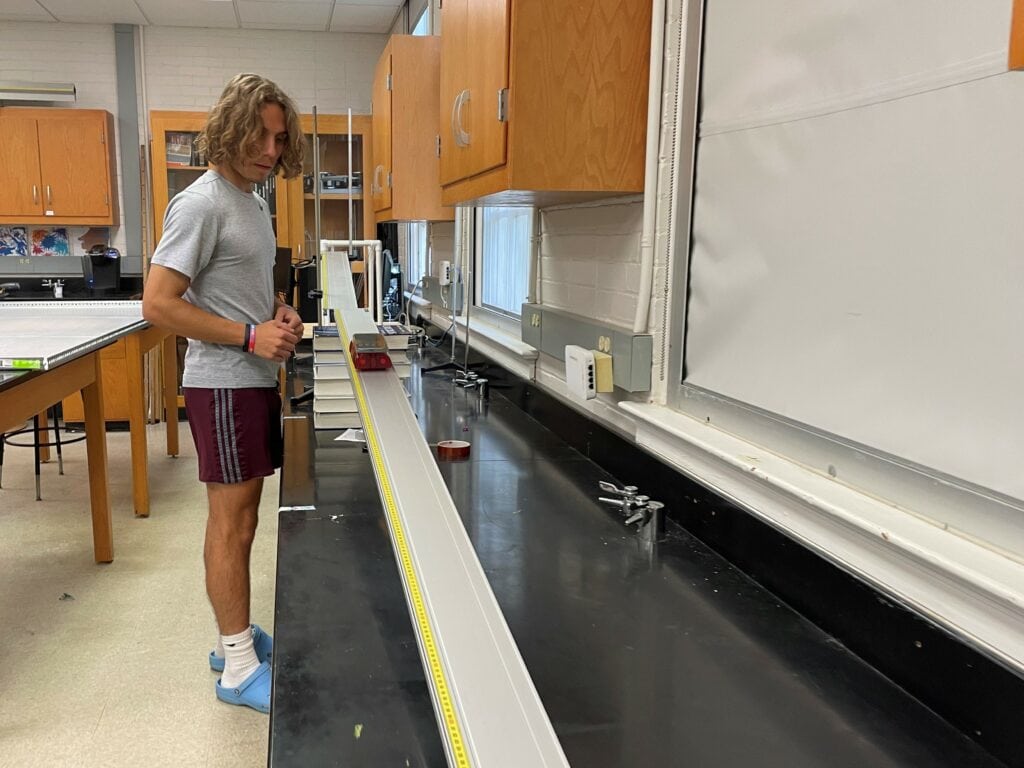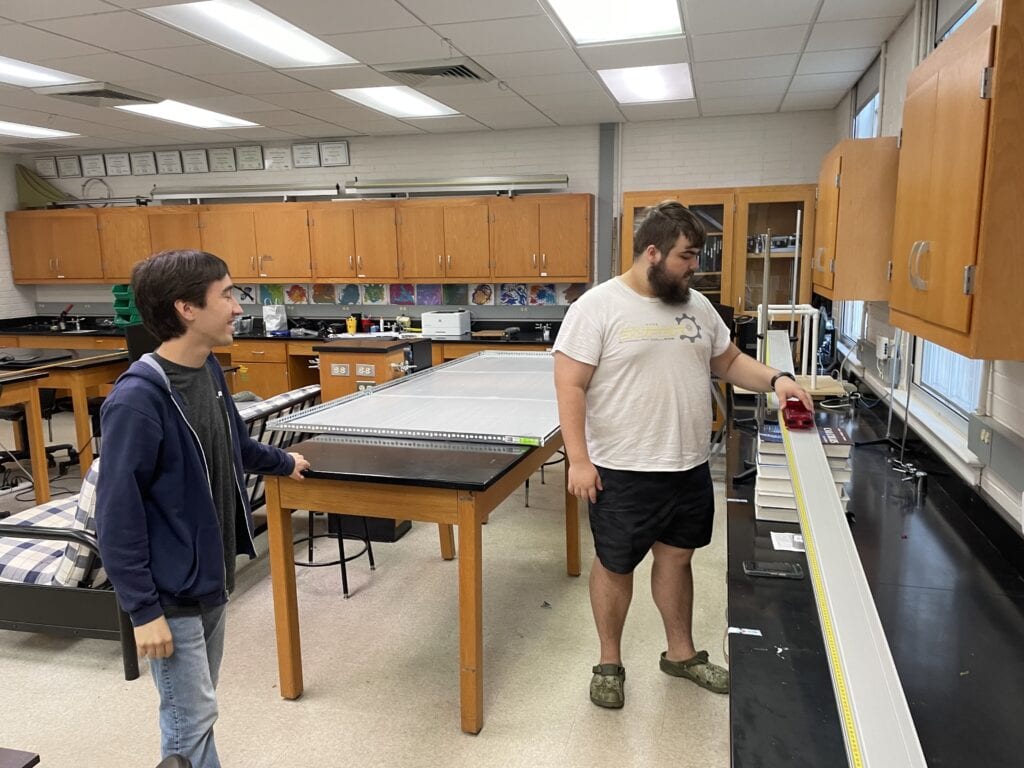Students testing the ability of cellphones to map motion

Isaac Carney ’24 sends his phone down a ramp in Randolph’s physics lab.
Cell phones have taken a beating this summer as part of an ongoing research project led by professor Peter Sheldon.
Isaac Carney ’24 and Luke Chapman ’25 have been sending their phones—an iPhone and Android, respectively—rolling down a track, over and over again, to evaluate the accuracy of their built-in accelerometers and gyroscopes.
The ultimate goal of the project is to eventually make measurements of and map roller coaster rides without using any external stimulus such as GPS.
“We’re hoping that instead of taking expensive equipment on a roller coaster, we could do it with just our phones,” explained Carney, an engineering physics major.

Elliott Putnam and Luke Chapman ’25 in the lab.
Sheldon has revisited the project with students often over the years and, in the past, found instances of an anomaly when measuring the constant acceleration of an iPhone as it rolls down a track.
This summer, Carney and Chapman, along with Elliott Putnam, a student at Rensselaer Polytechnic institute in upstate New York, were able to confirm that the anomaly does, in fact, exist, and not just on iPhones but Androids. They also found that it occurred in other scenarios, such as dropping the phone while measuring its acceleration.
“Now that we’ve done that, we need to assess how to account for this when you’re riding a roller coaster,” said Chapman, who is majoring in mathematics.
Putnam also did his own trials measuring non-constant acceleration, swinging a phone back and forth on a pendulum.
“We’re back to the original experiment, which is can we use an iPhone to map motion?” Sheldon said. “I’ve done this for years, and students get really stymied when we move from one dimension to two dimensions. That’s what these guys are doing.”
Carney and Chapman also used their time in the lab to try out different apps that collect acceleration data and are compiling the information into spreadsheets.
“I like the physics involved with roller coasters,” said Carney. “I like knowing how they work and cool ways you can use the tools we have even in our pockets to make sense of them from a physical standpoint.”
Tags: Engineering Physics, faculty student research, physics, research, roller coasters
